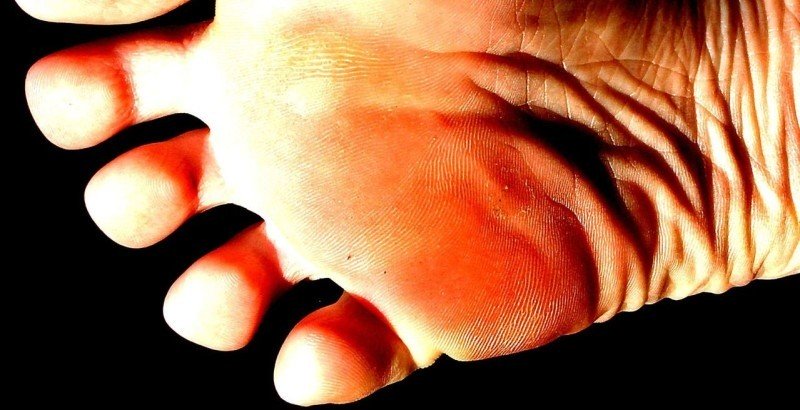How Does Diabetes Affect your Feet?

Diabetes causes a lot of problems and affects a number of body parts. The feet receive the hardest blow of them all. Diabetes affects feet for two main reasons:
-
Diabetes causes neuropathy
The feet, like all other parts of the body, contain a network of nerves. These nerves help the feet detect pain, hot, cold, vibration and other sensations. Diabetes damages these nerves, this condition is called diabetic neuropathy.
With neuropathy, a diabetic is unable to feel pain even if there’s a foot wound (which can get infected without feeling). It may also cause misalignment of your muscles and bones, which may put more pressure on your feet. This further increases the chances of infection and injury.
-
Diabetes causes peripheral vascular disease
Diabetes accelerates the build-up of bad cholesterol in your vessels. It also damages the vessels and causes a decrease in the release of a chemical called nitric oxide, which functions to relax your blood vessels.
Furthermore, people with diabetes feet receive less blood supply than they actually should. Because of the shortage in the blood supply, the tissues in the feet start to die. It also slows down the healing process of wounds in the feet.
You may experience a few or several of the following problems due to diabetes:
- Athlete’s foot: It is a condition in which fungus starts to grow between the toes of your feet. It causes pain, redness and cracking of the skin.
- Calluses: It involves the formation of hard skin on the underside of the feet.
- Corns: It is the formation of hard skin on the bony sides of the toes or in between the toes.
- Blisters: These are the fluid-filled bubbles that may form on your feet either due to infection or due to wearing tight shoes.
- Foot Ulcers: These are the most important foot-related complication of diabetes. These ulcers form from a wound that fails to heal properly.
In closing, if you’re diabetic it’s recommended to check your feet often and if you see anything out of the ordinary contact your doctor immediately.